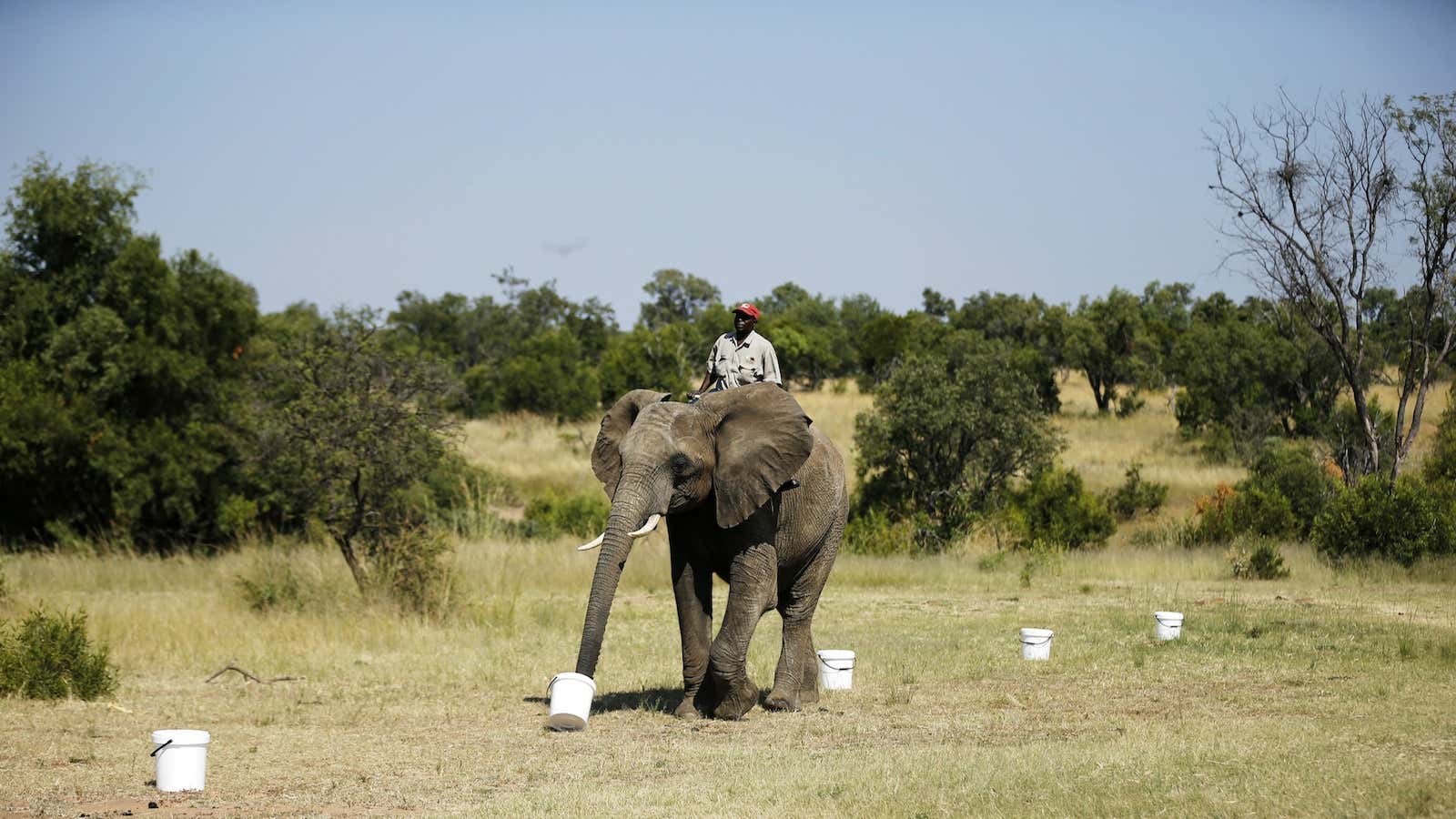You might not think that the world’s heaviest land mammal would be good at avoiding landmines—especially since many mines are activated by weight compression. But US Army researchers are training tame African elephants to detect TNT, the AP reported in March 2015. According to The Economist, the elephants have since proven quite adept at identifying explosive materials “amid decoy odours of bleach, petrol, soap, and tea.”
Using animals to detect unseen hazards is known as “biodetection,” and elephants are particularly good at it. In Angola, one of the most mine-contaminated countries in the world, wild elephants have been observed navigating dangerous areas repeatedly and safely—a skill they picked up on their own.
The Angolan Civil War, fought intermittently between 1975 to 2002, was one of the bloodiest conflicts to take place on African soil. Researchers at the University of Massachusetts at Amherst estimate that more than 800,000 people lost their lives during those 27 years, with a further 4 million displaced. Humans were not the only casualties. The conflict decimated Angola’s African elephant population—starving civilians hunted them for food, and rebels traded ivory for arms.
When the conflict ended in 2002, very few elephants were left. Some began migrating of their own volition from neighboring Botswana—which is dealing with an elephant overpopulation problem (paywall)—others were airlifted in. Regardless, conservationists working on repopulating Angola’s reserves were understandably anxious at the prospect of large herds rumbling across landmine-strewn territory.
A number of elephants were killed by landlines in the years immediately following the war, but since then, Botswanan elephants seem to have learned to sniff out the danger. “The landmine-death rate has fallen even as the elephant population has increased in Angola’s most heavily mined province, Kuando Kubango in the southeast,” The Economist reports.
“We have not seen any evidence of elephants being blown up or injured by land mine explosions in the three years we have been working in this area,” biologist Michael Chase, who studies elephant behavior in southeastern Angola, told National Geographic.
It should come as no surprise. African elephants have one of the best senses of smell in the animal kingdom, with more genes dedicated to olfactory sensation than any other mammal. They have twice the number of smell genes as dogs and five times more than humans, a 2014 study published in Genome Research claims. They also have large olfactory bulbs and larger-than-average portions of the brain devoted to smell, compared with other mammals.
The US Army’s new initiative to use elephants as bomb detectors raises the usual questions about the ethics of employing animals in dangerous work, particularly in current or former conflict zones. That, however, may not be a problem for long. So impressive is the elphantine sense of smell that the aforementioned US military researchers are actually seeking to replicate its mechanisms in bomb detecting technology, USA Today reports. Army engineers are reportedly attempting to design “a sensor based on an elephant trunk, which puffs out air, stirring up an area, and then sucks in air to smell.”
